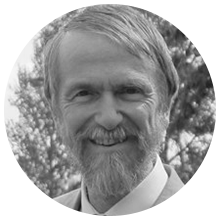Special Seminar: Michael Wisnom
Professor Michael Wisnom
Professor of Aerospace Structures
University of Bristol
Abstract
High Performance Pseudo-Ductile Composites
Thin-ply hybrid and angle ply laminates can exhibit pseudo-ductile response as a result of stable ply fragmentation. This mechanism for pseudo-ductility is reviewed and it is shown that a similar response is possible in compression as well as tension. Fatigue and other mechanical characteristics of these pseudo-ductile composites are also presented.
Biography
Michael Wisnom is Director of Bristol Composites Institute (ACCIS) which builds on the work of the Advanced Composites Collaboration for Innovation and Science. He is a leading expert on the mechanics of fibre reinforced composites, failure mechanisms and finite element analysis, with over 400 published papers. He is a member of the steering board of the National Composites Centre, Editor in Chief and European Editor for Applied Science and Manufacturing of the international journal Composites Part A and was Director of the Rolls-Royce Composites University Technology Centre from 2007-2017. He is a Fellow of the Royal Academy of Engineering, of the Institution of Mechanical Engineers and of the American Society for Composites. Professor Wisnom was awarded a Royal Society Wolfson Research Merit Award in 2005 and was President of the International Committee on Composite Materials from 2009-2011.
Prof. Wisnom has a BSc in Mechanical Engineering from Imperial College, and a PhD from Bristol University. Prof. Wisnom is Director of the Advanced Composites Centre for Innovation and Science (ACCIS) research centre. His interests are mainly concerned with failure of composites and the application of finite element analysis to understand and predict the behaviour of materials and structures under load:
Failure mechanisms in composites
Fibre direction and transverse tension, compression, shear, delamination, bending. Test methods. Notched strength. Size effects. Fatigue. Modelling of failure mechanisms. Micromechanics.
Finite element analysis
Modelling techniques. Non-linear analysis. Progressive damage modelling. Buckling. Strain energy release rate analysis. Residual stresses and distortions
Predicting behaviour
Failure criteria. Use of fracture mechanics. Statistical methods. Fatigue crack propagation. Influence of defects. Simulating manufacturing processes.
